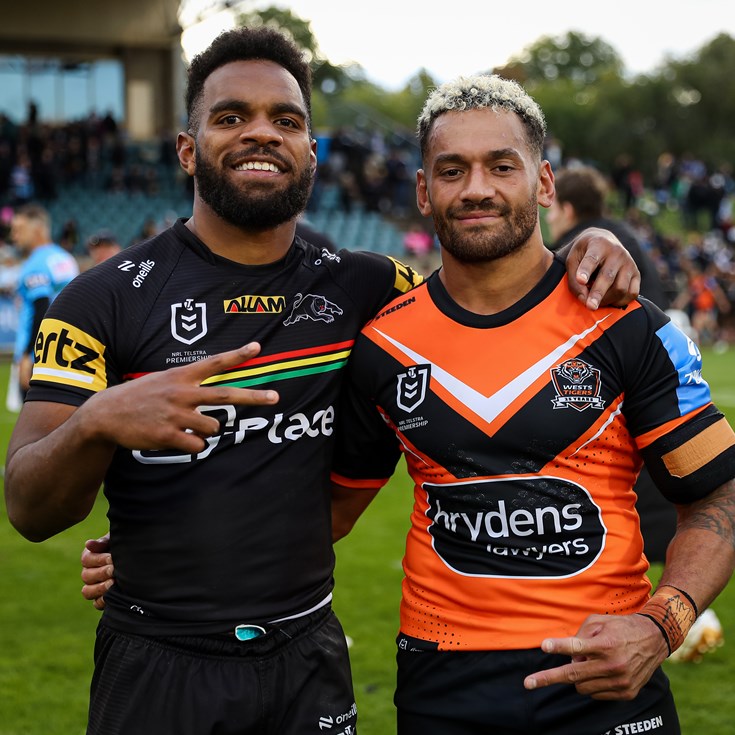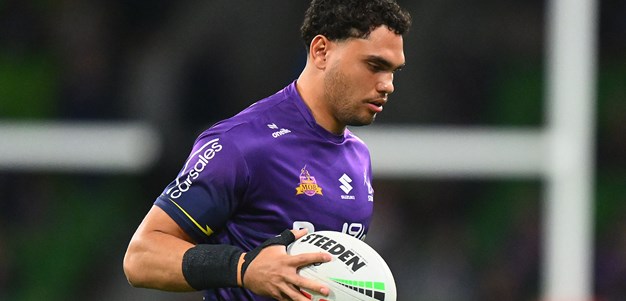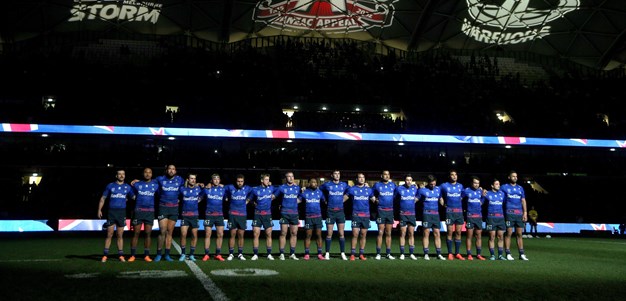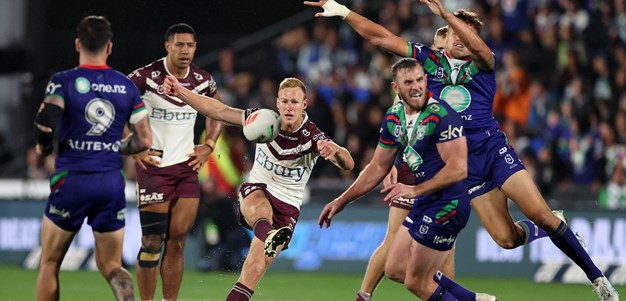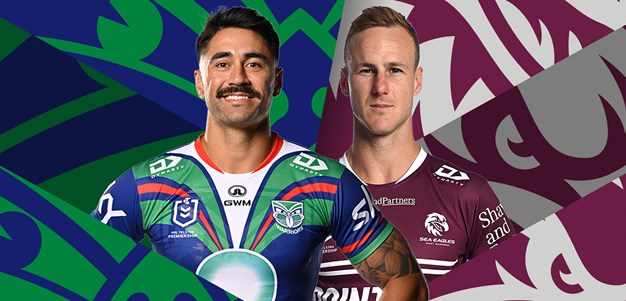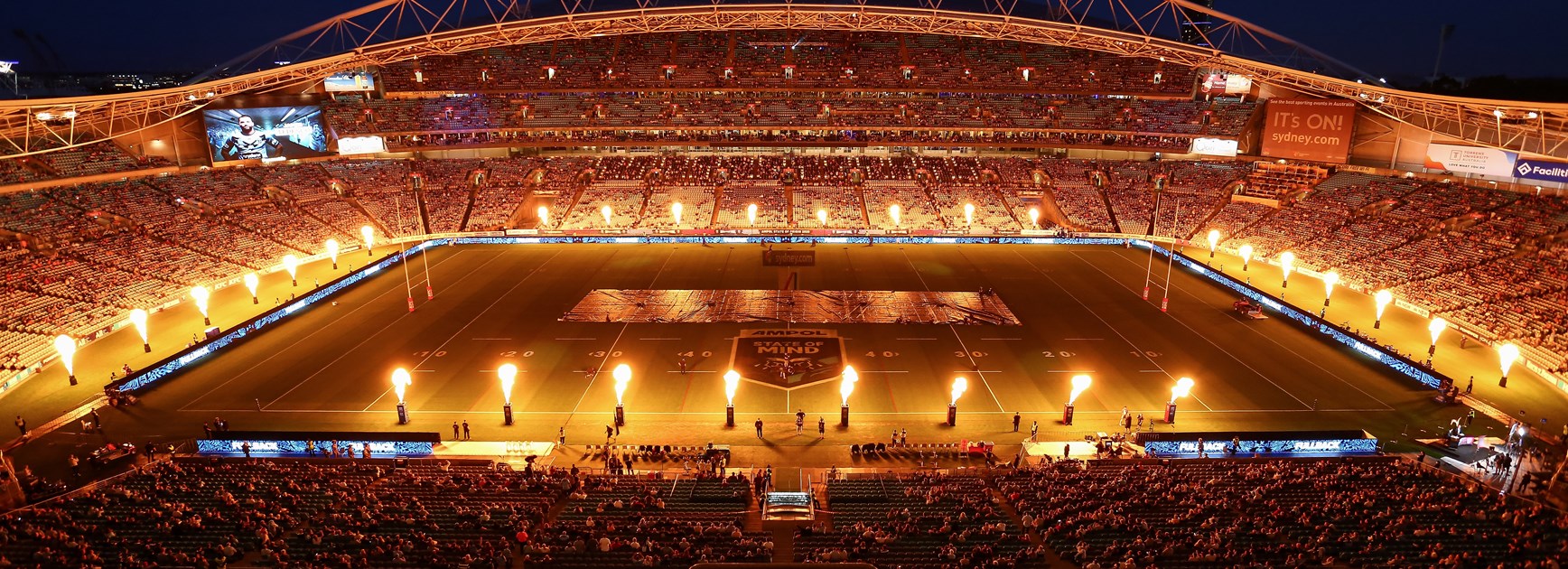
Leading theatre, dance and music groups have approached the NRL for advice on how the game has navigated its way through the COVID-19 crisis to finish the season with the world's highest sporting attendance since the global pandemic was declared.
After resuming the Telstra Premiership on May 28 with round-three matches played in front of cardboard cut-outs of fans, the 2020 season will conclude before 50,000 fans at Suncorp Stadium for Wednesday night's State of Origin decider between NSW and Queensland.
The anticipated crowd will eclipse the 46,061 attendance for the Bledisloe Cup rugby union fixture at Eden Park and the 29,707 AFL grand final crowd at The Gabba as the biggest sports attendance since 86,174 fans watched the final of the Women's T20 World Cup at the MCG on March 8.
Just three days later the World Health Organisation declared that the coronavirus outbreak was a global pandemic and sports around the world shut down soon after, including the NRL.
The NRL season started on March 12 with no restrictions but round two was played in empty stadiums and on March 23 it was announced that the premiership had been suspended indefinitely.
However, the NRL led the way for other sports in Australia and was the first major competition after Germany's Bundesliga to restart when the Broncos played the Eels on May 28.
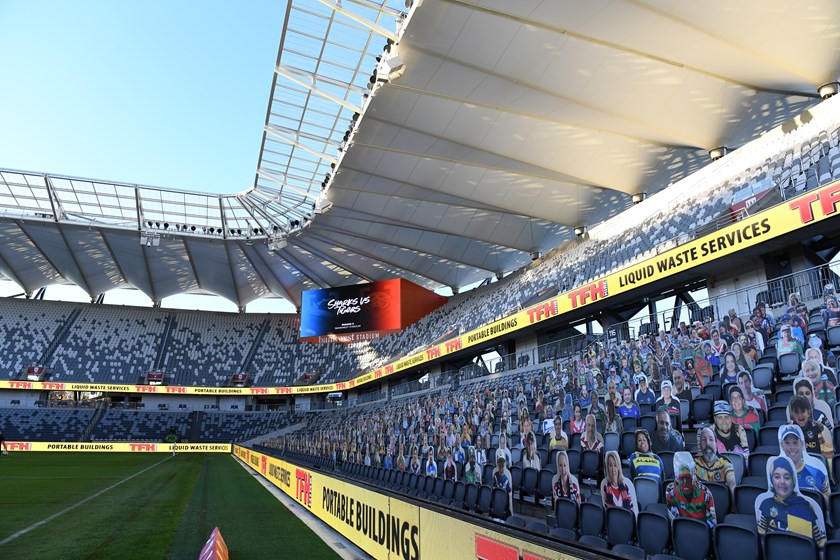
After successfully completing the rebooted 2020 season, the NRL has been approached by other organisations seeking details of how the game had managed to do so.
"We're in a situation now where other organisations are reaching out and saying 'how did we do that?' or 'we want to replicate what you have achieved'," NRL head of partnerships Jaymes Boland-Rudder said.
"It's not just the sporting industry but the broader entertainment industry. Sydney Theatre Company, Opera Australia and Sydney Dance Company have all reached out and said 'the government has told us to come and talk to you guys about how to structure these things'."
The game and, in particular, ARL Commission chairman Peter V'landys had attracted criticism and scepticism over the bullish approach but seven months later all 144 scheduled matches, the NRL finals and the Ampol State of Origin series have been completed with few real problems and no players testing positive.
By comparison, the English Premier League has had 68 positive cases since round one 11 weeks ago, while the Super League abandoned the last two rounds and fast-tracked an expanded finals series after the constant postponement of matches due to players testing positive.
In the NFL, matches have also had to be rescheduled after 24 Tennessee Titans players and staff contracted COVID-19, while teams are playing before small attendances or no crowds at all. There were 91 cases during the recently completed MLB season.
Cameron Smith pays tribute to Victoria then raises Provan-Summons trophy
The key to the NRL's success has been the strict biosecurity protocols devised and implemented by the Project Apollo team, headed by ARLC commissioner Wayne Pearce, and the support of the players – some of whom have likened being in Origin camp to a "six-star prison".
Since training resumed in early May, players have had to undergo daily temperature tests and enter health details into the specially designed NRL Check-Up app before they leave home.
The Warriors relocated from New Zealand to Australia and the Melbourne Storm won the 2020 premiership while based on the Sunshine Coast for five months, while most other players could do little more outside their homes other than go to training.
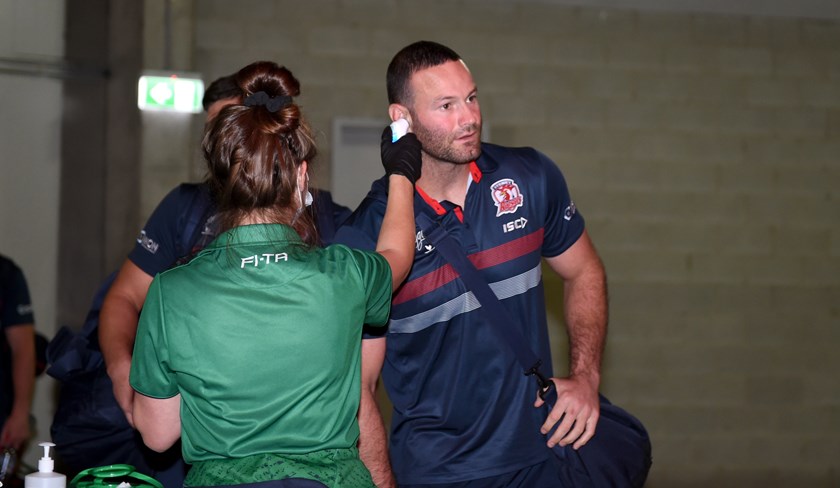
Teams had to adjust to flying to and from away games on the same day.
Fans made sacrifices too and despite only being able to attend games in limited numbers from July 1, most of the NRL's 300,000 members continued to financially support their clubs.
The Fan in the Stand initiative enabled supporters to be represented by life-sized cardboard cut-outs of themselves on seats at stadiums during matches until crowds were able to start returning in round 8.
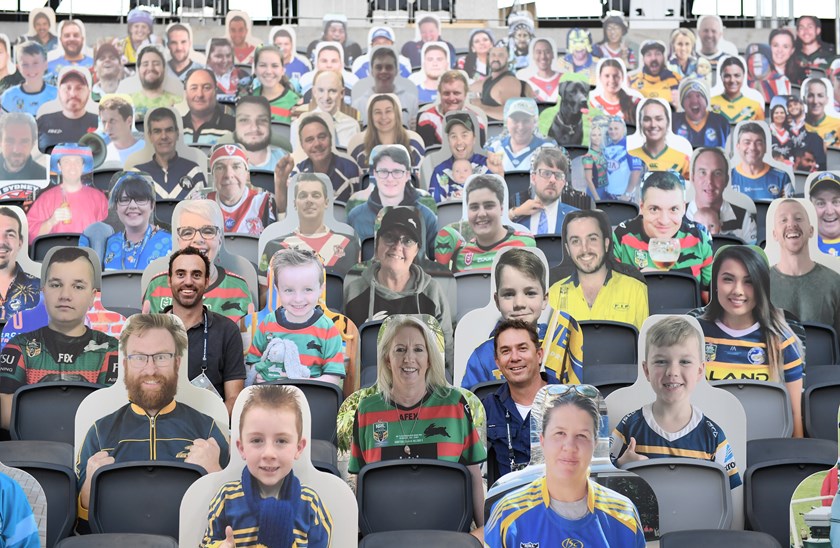
In the finals, stadiums were able to welcome crowds of 50 per cent seating capacity and 37,303 fans watched Melbourne beat Penrith 26-20 at ANZ Stadium. The attendance for last Wednesday night's second State of Origin match at ANZ Stadium was 36,212.
However, those crowds are set to be dwarfed at Suncorp Stadium on Wednesday night after Queensland premier Annastacia Palaszczuk announced last week that the capacity for outdoor stadiums would be increased from 75 per cent to 100 per cent ahead of Origin III.
"It's good timing," Maroons captain Daly Cherry-Evans said. "We're super happy there's going to be so many people at Suncorp. It's a special place to play footy.
"You just know those extra couple of thousand people are going to make a massive difference. That place roars at full capacity.
"We need to give them something to cheer for and I know we can do it."
Smith says embracing magnitude and history of Suncorp key for Maroons
Game three tickets are selling fast. Be a part of the largest crowd in the world since lockdown!

